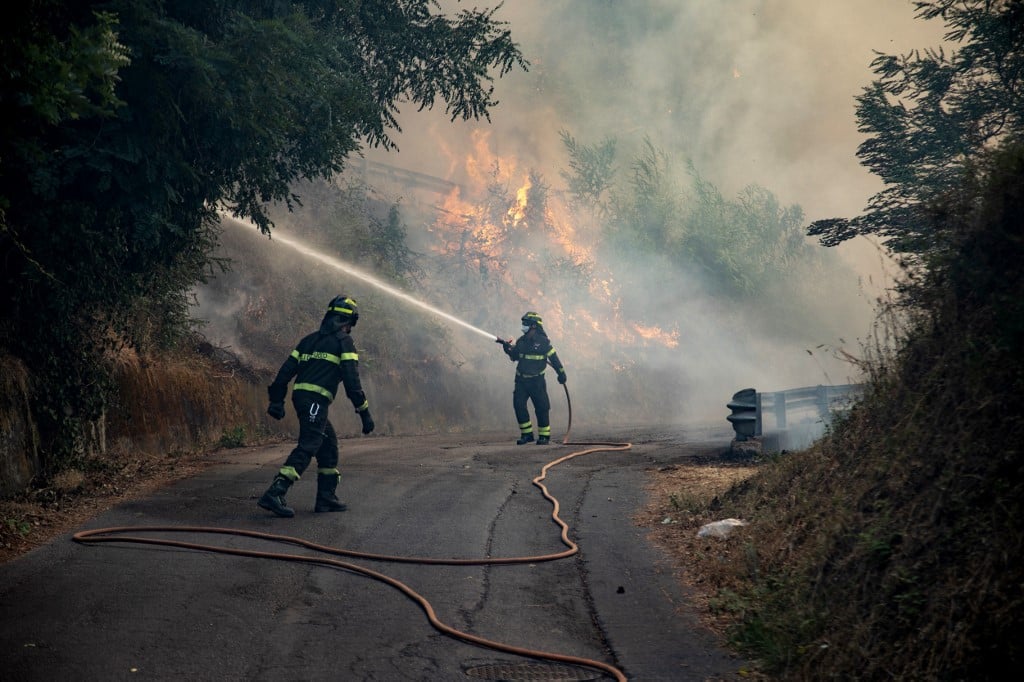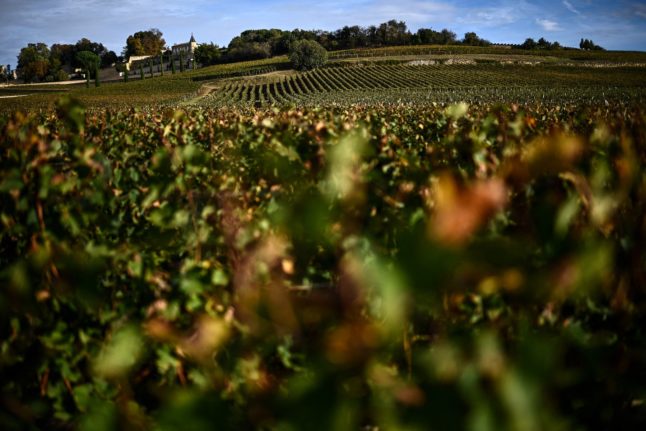The letter, sent from Italy’s Climate Media Centre, was also signed by the 2021 Nobel Prize winner for physics, Giorgio Parisi of Rome’s Sapienza University.
The alert came as large parts of Europe, especially Mediterranean nations including Italy, have been hit by extreme heat and fires, even as severe storms and hail pelted Italy’s north.
READ ALSO: Seven killed in storms and wildfires as Italy divided by extreme weather
“Heatwaves, floods, prolonged droughts and fires are just some of the signs of the intensifying impacts of climate change on our territories,” read the letter signed by 96 scientists, citing 18,000 deaths in Italy from last summer’s heatwave.
The death toll from this season’s ongoing heatwave has not yet been determined.
“However, the Italian media still too often talk about ‘bad weather’ instead of climate change. When they do talk about it, they often omit the causes and the solutions,” read the letter.

Media omissions risk “fuelling inaction, resignation or denial of reality”, when solutions are at hand, namely “the rapid elimination of the use of coal, oil and gas, and decarbonisation through renewable energy”.
“This is the right strategy to stop rising temperatures, and it is technologically and economically feasible today,” wrote the scientists.
VIDEO: Sicily set for state of emergency as wildfires blaze
The letter was signed by Italian professors and researchers from a wide range of universities and institutions, most in Italy but also France, Britain and the United States.
Italy’s media landscape is dominated by rightwing outlets which have for decades been owned, connected to, or heavily influenced by the late former prime minister Silvio Berlusconi and his family’s business empire.

Today, such outlets are still viewed as mouthpieces for the hard-right government coalition, which includes Forza Italia, the party led by Berlusconi until his death in June.
The government’s strategy on tackling the climate crisis remains vague, and its main environmental proposals so far have included introducing nuclear power.
There was little discussion of the issue among leading politicians during election campaigning last summer, despite polls at the time identifying climate change as one of the biggest concerns among voters.
A study published last year by climate change thinktank ECCO meanwhile found that, while the majority of Italians were aware of the impact of climate change and want action, there was a strong sense of mistrust towards politicians and the media, and many felt there was a lack of representation on climate issues.
Heatwaves have become more likely due to climate change, scientists have repeatedly confirmed. As global temperatures rise over time, heatwaves are predicted to become more frequent and intense, and their impacts more widespread.
At the same time, rising temperatures and increased dryness due to changing rainfall patterns create the ideal conditions for bush or forest fires.



 Please whitelist us to continue reading.
Please whitelist us to continue reading.
Member comments